High end, custom PC systems not only deliver performance but look awesome, But do they suck?
Let me explain that last question. While looking at some custom cooling solutions for my current Ryzen based system, I was starting to wonder how much of a pain it would be when it came to trouble shooting, swapping out parts and general maintenance.

The Argument For High End.
- There are not a lot of people that can afford to go to the ''enthusiast'' level when it comes to building a custom PC system, and there are even fewer who know how to push a system beyond its stock limits.
High end consumer grade systems like AMD's Threadripper and Intel's i9 Extreme are the pinnacle of performance in both gaming and workload applications. They do things much better than anything else. The systems that use such CPU's would typically have the best of everything, including high end ram in excess of 64Gb, top end graphics cards like the Nvidia GTX 1080ti, a Radeon RX Vega 64, or even the $3'000 Nvidia Titan V. Storage would come in the form of an NVME M.2 storage, and all this would be housed in a very expensive case. You would also see that there would be a custom water cooling solution with hard line tubing, and even in some extreme cases, glass tubing.
- When you look at the hardware side of systems that are OTT, they are extreme powerhouses. They can play any game at ultra/max settings, with every visual aid turned on, at 120+ frames per second to produce the most immersive experience possible, with some going to the extra immersive by going full VR.
The workload side of high end builds is unparalleled. The can make workloads such as video editing much better, by allowing the user to scrub through the videos at a much higher resolution with nearly no delay thanks to the high end storage, as well as export and transcode much faster than any cheaper alternative. The same applies to 3D modelling, Cad work, audio editing, streaming, and so much more.
So ideally if you are a gamer or produce work, the higher end the better the end experience and the amount of time saved for higher quality work... So why then do we see these overly elaborate builds with custom water cooling solutions, multiple GPU's and RGB everywhere?
- Usually the custom cooling solutions and RGB everything apply to the PC 'enthusiasts' among us. They want to make there system unique to fit there personality and/or setup. But there is a distinct advantage the cooling solution has over conventional heatsinks and AiO's.
Setting aside the RGB, the custom water cooling solutions primary function is to keep the CPU and GPU(s) as cool as possible. While it may not be necessary to use such a cooling system if you are only using stock settings... it is very useful for the enthusiasts who push there system too and beyond there thermal limits, otherwise known as overclocking.
The open water cooling loop system allows you to monitor it for function, in case of any blockage, to see any contaminants in the fluid, and to top the system up if it evaporates through the reservoir (which is very rare). The large radiators work exactly like your car radiator, it exchanges heat with the air that is blown through it. And when you are overclocking your system, the better this heat transfer is, the cooler your components stay, allowing you to overclock even further, allowing the system to perform tasks much faster than if it was stock.

The Argument Against High End.
- Cost is the biggest issue with the majority of people. The components not withstanding, the parts for the cooling solutions and custom RGB lighting everything is far higher than the alternatives. A large 360mm AiO (All in One) water cooler would cost about $150 - $200 which is a fit and forget system, requiring no maintenance. And if you wanted one for your GPU, they would cost about an extra $100 on top depending on the GPU you were using. A custom water loop, well I went onto Overclockers.co.uk and priced up the cheapest compatible loop, complete with 2 360mm radiators, a reservoir, pump, hard tubes and all the fittings I would need for my Ryzen system, and it came to just over £600 (about $800) that is almost a 200% increase in value over the AiO alternative. Yet some high end custom loops can cost more than the system itself at in excess of $3-4'000.
Some people, including myself think that spending that amount of cash on a custom water loop is nuts. Yeah sure, the system will look fucking awesome, but there are a few downsides such as leakage. If you do not build the custom cooling solution correctly or, although vary rare, the seals degrade, it can leak onto your very expensive hardware, and in some cases, it can destroy it. So that $3'000 GPU and $4'500 CPU will be only useful as paper weights if that was to happen.
- Another problem with having a custom cooling solution is the inability to quickly change, maintain or remove components. On some motherboards, there are one or more M.2 slots for storage. If these were to be occupied, on some systems the GPU may need to be removed to access them. With a such a cooling system embedded into the GPU(s), gaining access would require draining the water, dismantling the loop just to remove the GPU, before you get to the Storage drive. Equally, depending on the design and placement of this water system, other parts may be inaccessible such as other expansion cards, RAM modules, and such without having to remove the cooling solution first.
AMD have confirmed that the AM4 platform they are currently using, will be used for a minimum of 3 generations, of which we are currently on the second. If you have a first gen CPU, you can upgrade it to a newer gen, but if you have a custom water loop, again, you have to dismantle it in order to gain access to change the CPU out. Likewise with a GPU, when the next gen GPU's come out later this year, you have to not only dismantle the system to remove it, but you will more than likely have to buy an all new water block for the new GPU, adding yet more cost.
- Other components are also questioned when looking at price. Take PC cases for example, some of them, just like the water loop, can cost more than the value of the hardware going in it. Take the In-Win Winbot case that costs over £3'500 (over $4K), when a $200 case will do the exact same job, maybe even better. And some other cases can go even beyond this price.
RGB everything is another thing most people can not get away from when building a PC. Sure you can make your system your own and make it unique, but the RGB adds nothing to the fuction of the hardware, other than adding some light. Drives, RAM, Fans, Water loop fittings, GPU's, Motherboards, expansion cards, cases and now even cables are all available with some form of RGB lighting. Although they do look cool, they add nothing to performance, they only add an additional cost. The main problem though with RGB is not the extra cost, it is the RGB side of the PC industry is broken. Very broken. What I mean by this is that there are far too many companies trying to push there own proprietary system and/or software which forces you to only use one or a very limited number of brands if you want to sync all the lighting so they work together and not independently. My own system is a good example. The fans I originally bought had there own self contained system that could not be connected to anything else. It took a while for me to find the fans that could work with the rest of the system.
Most people will not bother with RGB lighting, and those like me that do, find it very tedious to find the right combination of components so they work together.

So... Do High End Systems Suck?
If you look at the performance side of the hardware used, the results are unquestionably positive in almost every aspect, regardless of the workload. But this is only possible if you have the cash to afford such a high end system.
If that high end system was used with simplified cooling solutions such as AiO's, then no, high end systems do not suck.
The performance that can be gained from overclocking with custom water cooling solutions are again, unquestionable. If that high end system was to be used in conjunction with a custom water cooling solution, then there are many disadvantages. If you are willing to put the time and effort in to incorporating, maintaining and dismantling when necessary then you are only part of a small percentage of people who would do this. The risk, in many peoples eyes of using anything but an AiO is too great. Maybe if you have a few Threadripper chips and some Titan V's kicking about, then you again, are only one of a small group who can afford to make mistakes.So in conclusion, performance on the high end is better than most anything else and does not suck, but the hazards, problems and risks that come with that same system make it suck monkey balls.
It is all about the individual, how much they are willing to spend, and how custom they really want to go. But there is no denying that some of the high end systems look fucking awesome.
What do you think about the high end PC systems?
Let us know in the comments below.
Thanks for reading.
Stu @TechMojo

Join the chat TechMojo Discord Channel Follow us TechMojo Dlive Channel Like us TechMojo Facebook Page Follow us TechMojo Twitter Follow us TechMojo OnG Social Page
@TechMojo Recommended Blogs you should follow.
@Deeviras @Gaming-Stuff @retro-room @gamesociety @Rerez @C0ff33a @Free999Enigma @NegativeSpace @SteemGC @GamingStation @XR-HammerGaming @tygergamer If you want to apper here, then contact us via our Discord Channel!
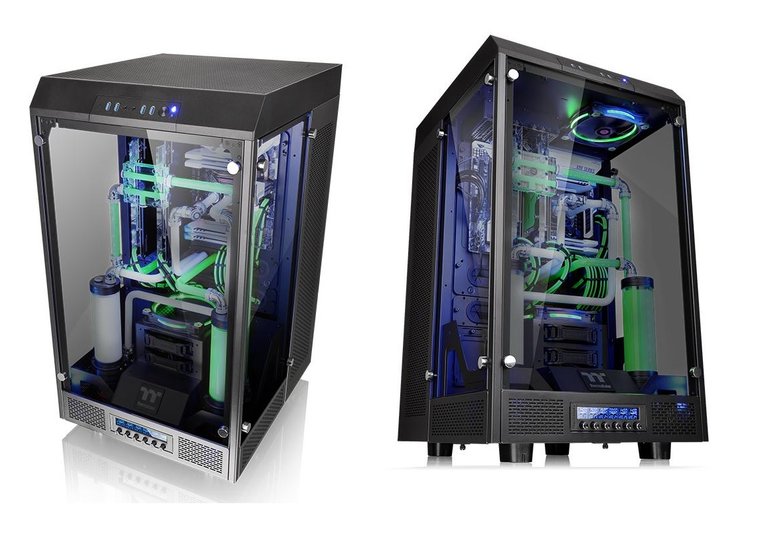

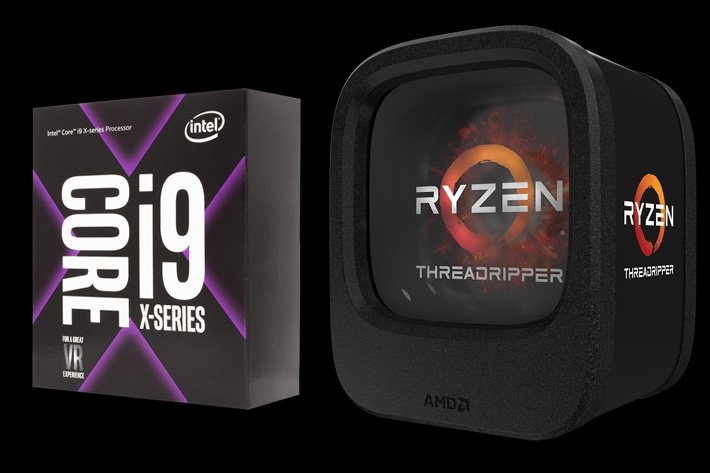
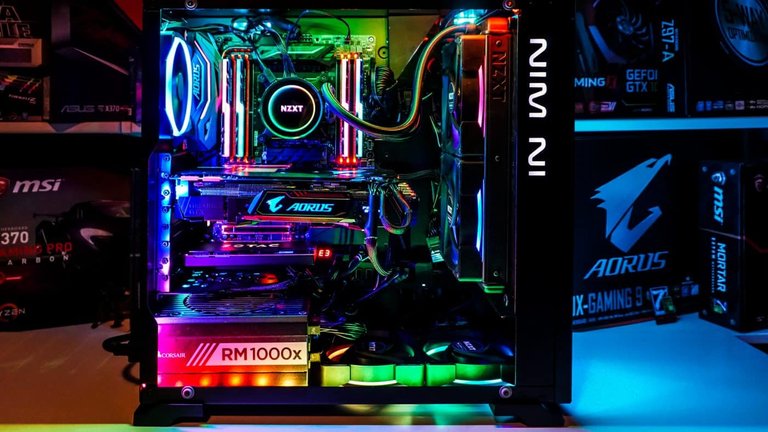
.jpg)
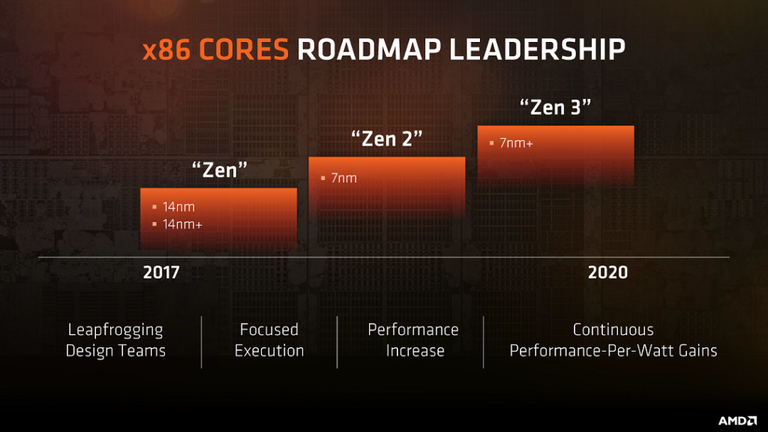

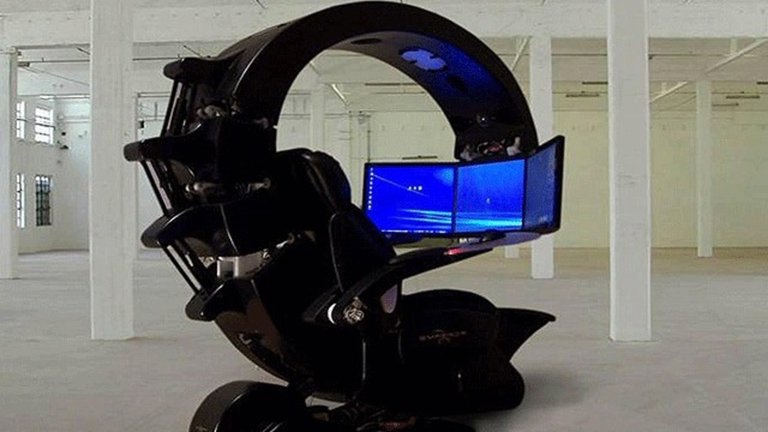


Hmmm... I see. So that's what's inside high end computers.
I think you can get far more power then you ever need in some high end systems, for the majority of gaming and computing needs a relatively modest system can more then suffice.
That said I have been watching my boy play Detroit Become Human all day, and that's visually stunning running on a PS4 - which as we know isn't exactly the highest spec.
#thealliance #witness
i agree totally. my mid range / enthusiast system is more than capable of running all the games i have at max settings at above 60fps. but like some other systems/setups, who run triple monitor setups, will need that extra performance. and if you want a higher frame rate / ''smoother look'' (i say that loosely) you again will need higher grade hardware.
i suppose for gamers, it really depends on how much you want to immerse yourself in them. and you are right, for the majority, a mid tier PC is more than enough, but for those select few, they want to have the best experience possible. but that will come with the issues mentioned when it comes to maintenance, trouble shooting and upgrading.
To me... I don't give a toss on how much is spent, and how high-end it all is if it's NOISY, and to me, then its a piece of junk! I spent over a grand on a new bit of kit... and the noise makes everything about it a complete waste of money... still working with Dell to sort this out, but its a design issue... and in this day and age, noise on a PC shouldneverr be a factor!
yup. that is also one of the reasons i swapped out my corsair sp120 fans, they were so loud, even at idle. it pissed me off somet rotten. they had to go... now it is just the aggressive fan curve i have on the GPU that annoys me when playing without a headset or doing some 3D design / music / video work. one of the reasons why i want to get an AiO for it.
I'm with you in your pain! I do not understand how, in 2018, we still have to suffer noise and stupid fans!!!
I know what you mean, but to me in PC terms it's a case of either you keep it cool with air movement or it throttles the hardware to stop it overheating - so I would take noise over performance. The gaming PC I built has 5 Systems fans (two front pulling in, one back pull out, two top pulling out) plus the processor fan and the 1080i GPU has 3 fans. All that spinning air movement is still relatively quiet even under gaming load - but more importantly it never throttles from overheating - even at the moment when we are sweating ourselves to death doing nothing! What is noisy - the PS4 - damn that thing is like an Jumbo jet taking off at the moment when running a game - but that's because of the size, compact might be aesthetic but is poor for cooling and to make up for it they need a super high rev fan to pull max air through. The ultimate solution I think though is to just have the hardware somewhere else in the house like an attic - and either remote play it through a basic system or use bluetooth accessories and a very long HDMI lead!
I'm contemplating having my ears removed or filled up with putty to stop the noise!!!!! ARGH! THE BELLS! THE BELLS!!!!! :)
I don't like RGB because it is too distracting in a world of too may distractions. I like computers to be quiet, unobtrusive and just get the job done.
As for high performance, most normies just surf the web, watch Netflix and YouTube and send emails etc. Only gamers and cryptominers need high end stuff.
I find an upgrade once every 5 or 6 years tends to work out fine.
well. my previous AMD FX system which is still in use by the kids, was 4/5 years old ish before i upgraded the entire system... and i see myself keeping my current one at least for a further 3-4 years before i think about upgrading to a new platform.
i do however make incremental updates to the hardware i use inside it during that time though. like a better GPU, CPU, maybe more RAM, more/better storage. but then again, i am semi enthusiast and love to tinker/benchmark with such upgrades. Plus it also gives me stuff to blog about.
I think RGB is very subjective. the entire industry has been pushing it more and more recently, but as said in the post, it is a broken side of the industry. for me i just have some RGB fans, motherboard and RAM. just to illuminate my hardware and to match my personality. and it is the same for most other people who wish to show of there hardware too. but that is only a select group of people as everyone else, like yourself want the advantage of a PC without it being a distraction.
its really that technical with the cooling systems and all that. I been looking to get a new PC myself and build from the ground up.
if you do. i would say choose a Ryzen based one. its cheaper than the Intel equivalent, and more universal,,, ie, good in both gaming and workload applications. I use one for both gaming and streaming, with the odd video editing.
Yes but how fast can I compiled my Linux kernel? 😁
i don't know... maybe i could test it? lmao
Hi techmojo,
LEARN MORE: Join Curie on Discord chat and check the pinned notes (pushpin icon, upper right) for Curie Whitepaper, FAQ and most recent guidelines.
thank you. appreciate it.
And you deserve it, excellent post and you have been consistently posting for a very long time quality content. I'm actually quite impressed to see this - just shows they really do cover all creative content. Salute @curie - excellent work yet again for inspiring the greatest content creators on Steemit.